New research confirms that a photon’s wave and particle nature can’t be fully observed simultaneously due to entropic uncertainty.
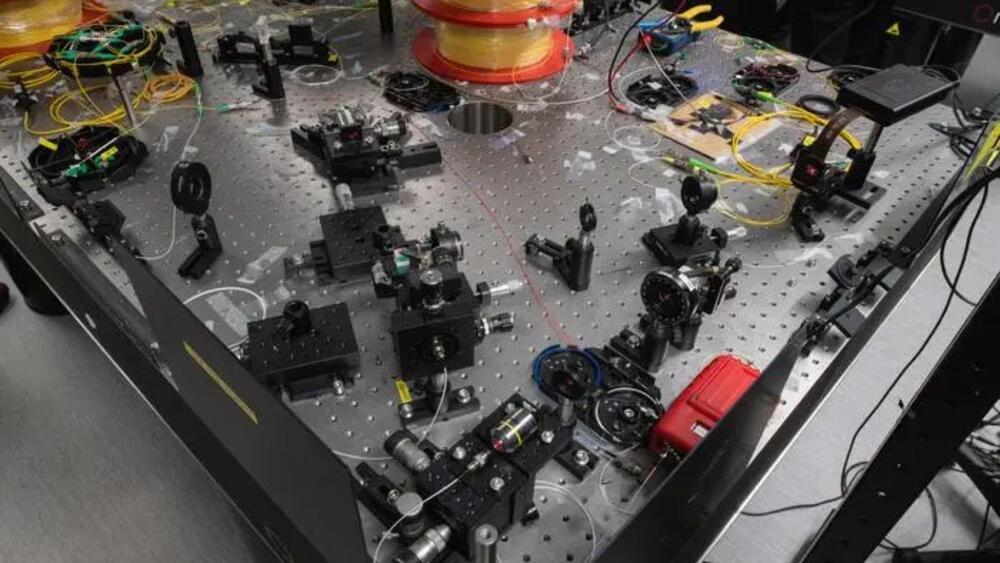


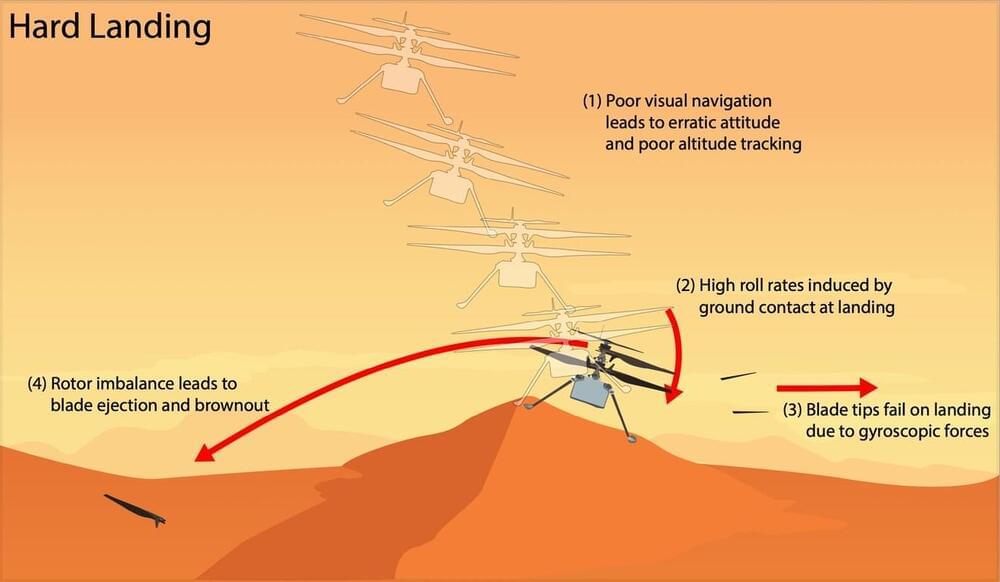
What can NASA’s Ingenuity helicopter on Mars teach us about flying on other planets? This is what engineers at NASA’s Jet Propulsion Laboratory recently investigated ever since the robotic pioneer performed its last flight on the Red Planet’s surface on January 18, 2024. The purpose of the investigation was to ascertain the likely causes for Ingenuity’s final flight, as the team found damage to the helicopter’s rotor blades in images sent back to Earth. This investigation holds the potential to help scientists and engineers improve upon Ingenuity’s design for future flying robots on other worlds.
“When running an accident investigation from 100 million miles away, you don’t have any black boxes or eyewitnesses,” said Dr. Håvard Grip, who is a research technologist at NASA JPL and Ingenuity’s first pilot. “While multiple scenarios are viable with the available data, we have one we believe is most likely: Lack of surface texture gave the navigation system too little information to work with.”
The reason for Ingenuity’s “retirement” was due to damage to its rotor blades it sustained during Flight 72, which turned out to be its final flight, due to navigation system failures in identifying a safe landing spot. As a result, engineers hypothesized that Ingenuity experienced a hard landing due to insufficient navigation data, breaking the rotor blades due to higher-than-expected loads. The findings from this investigation will help engineers implement better designs for NASA’s upcoming Mars Sample Return mission, which is currently in the design phase with an anticipated launch date of 2026.

How can tree placement impact urban temperatures? This is what a recent study published in Communications Earth & Environment hopes to address as an international team of researchers investigated how tree planting locations plays a vital role in mitigating the effects of climate change on urban environments. This study holds the potential to help researchers, climate scientists, the public, and city planners have the necessary tools and resources to combat climate change while still providing adequate ecology for their surroundings.
For the study, the researchers conducted a literature review on 182 past studies discussing how tree planting can decrease temperatures in urban environments, including 110 cities or regions worldwide and 17 climates, with the goal of quantifying this temperature decrease on a global scale. In the end, the team found that 83 percent of the cities used in the study experienced average monthly peak temperatures below 26 degrees Celsius (79 degrees Fahrenheit) while also noting that tree planting contributes to a decrease of 12 degrees Celsius (54 degrees Fahrenheit) in pedestrian-level temperatures.
“Our study provides context-specific greening guidelines for urban planners to more effectively harness tree cooling in the face of global warming,” said Dr. Ronita Bardhan, who is an Associate Professor of Sustainable Built Environment at the University of Cambridge and a co-author on the study. “Our results emphasize that urban planners not only need to give cities more green spaces, they need to plant the right mix of trees in optimal positions to maximize cooling benefits.”

A new class of magnetism called altermagnetism has been imaged for the first time in a new study. The findings could lead to the development of new magnetic memory devices with the potential to increase operation speeds of up to a thousand times.
Altermagnetism is a distinct form of magnetic order where the tiny constituent magnetic building blocks align antiparallel to their neighbors but the structure hosting each one is rotated compared to its neighbors.
Scientists from the University of Nottingham’s School of Physics and Astronomy have shown that this new third class of magnetism exists and can be controlled in microscopic devices. The findings have been published in Nature.

🏛️⛩️ ✍️ Lorenzo Teppati Losè et al.
The launch of the new iPad Pro by Apple in March 2020 generated high interest and expectations for different reasons; nevertheless, one of the new features that developers and users were interested in testing was the LiDAR sensor integrated into this device (and, later on, in the iPhone 12 and 13 Pro series). The implications of using this technology are mainly related to augmented and mixed reality applications, but its deployment for surveying tasks also seems promising. In particular, the potentialities of this miniaturized and low-cost sensor embedded in a mobile device have been assessed for documentation from the cultural heritage perspective—a domain where this solution may be particularly innovative. Over the last two years, an increasing number of mobile apps using the Apple LiDAR sensor for 3D data acquisition have been released.
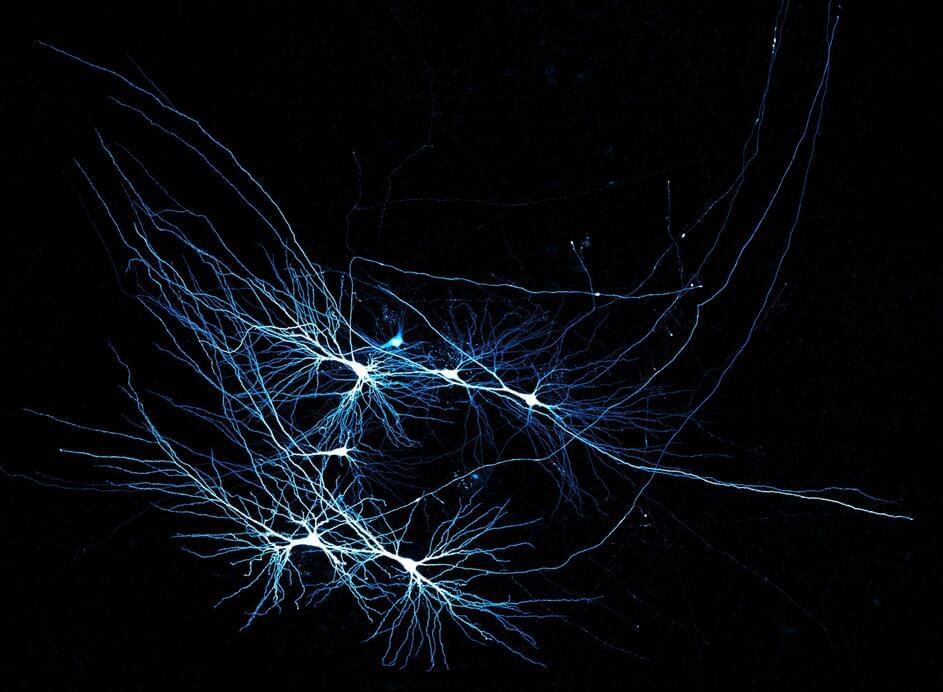
The black box of the human brain is starting to open. Although animal models are instrumental in shaping our understanding of the mammalian brain, scarce human data is uncovering important specificities.
In a paper published in Cell, a team led by the Jonas group at the Institute of Science and Technology Austria (ISTA) and neurosurgeons from the Medical University of Vienna shed light on the human hippocampal CA3 region, central for memory storage.
Many of us have relished those stolen moments with a grandparent by the fireplace, our hearts racing to the intrigues of their stories from good old times, recounted with vivid imagery and a pinch of fantasy.
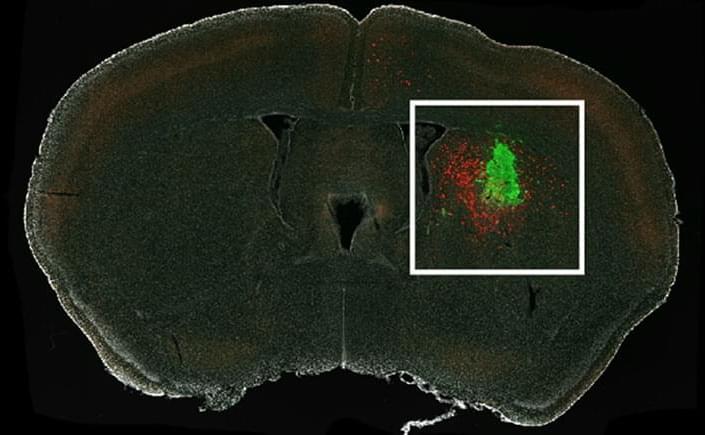
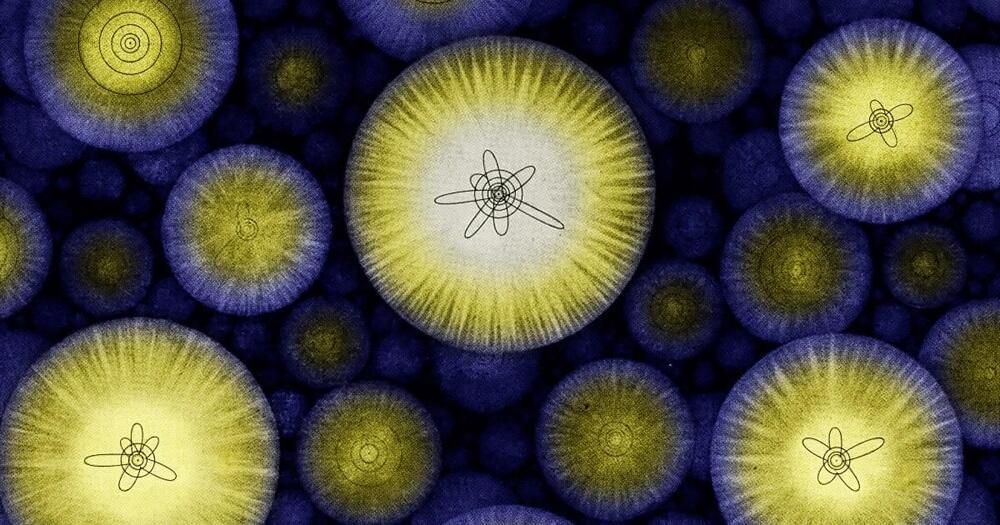
Here on planet Earth, as well as in most locations in the Universe, everything we observe and interact with is made up of atoms. Atoms come in roughly 90 different naturally occurring species, where all atoms of the same species share similar physical and chemical properties, but differ tremendously from one species to another. Once thought to be indivisible units of matter, we now know that atoms themselves have an internal structure, with a tiny, positively charged, massive nucleus consisting of protons and neutrons surrounded by negatively charged, much less massive electrons. We’ve measured the physical sizes of these subatomic constituents exquisitely well, and one fact stands out: the size of atoms, at around 10-10 meters apiece, are much, much larger than the constituent parts that compose them.
Protons and neutrons, which compose the atom’s nucleus, are roughly a factor of 100,000 smaller in length, with a typical size of only around 10-15 meters. Electrons are even smaller, and are assumed to be point-like particles in the sense that they exhibit no measurable size at all, with experiments constraining them to be no larger than 10-19 meters across. Somehow, protons, neutrons, and electrons combine together to create atoms, which occupy much greater volumes of space than their components added together. It’s a mysterious fact that atoms, which must be mostly empty space in this regard, are still impenetrable to one another, leading to enormous collections of atoms that make up the solid objects we’re familiar with in our macroscopic world.
So how does this happen: that atoms, which are mostly empty space, create solid objects that cannot be penetrated by other solid objects, which are also made of atoms that are mostly empty space? It’s a remarkable fact of existence, but one that requires quantum physics to explain.

A nanotechnology material called graphene has captured attention worldwide, with many scientists dubbing it the latest “wonder material” with the potential to have an enormous human impact.
Graphene’s structure, made of carbon atoms arranged in a thin sheet, has properties that make it a strong contender to revolutionize many industries.
It’s often regarded as the thinnest and strongest material discovered so far, showing flexibility that few other materials can match. Its potential uses range from improving electronic devices to creating better ways to clean water.